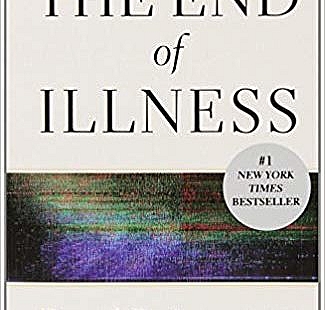In this wedding officiant job description, an ordained marriage minister describes what she does, and shares the best and worst parts of performing marriage ceremonies for “nonconformist” couples.
Here’s one of the best parts of working as a wedding officiant:
“I never encounter Bridezillas!” says Minnesota-based ordained minister Sid Korpi. “By definition, nonconformists shun the over-the-top trappings of a conventional wedding. These couples seek wedding ceremonies that are customized to them, that reflect their history together, and that reveal their personalities and values.”
Ordained ministers may perform weddings in churches, or while jumping out of airplanes — so they need to be prepared for anything! Here is Korpi’s career profile, plus job tips for aspiring ministers…
Wedding Officiant Job Description – Marriage Ministers
Korpi is a wedding officiant/nonsectarian minister through Universal Ministries; her business is called Nonconformist Nuptials. She is legally ordained and registered with the state of Minnesota to perform marriage ceremonies.
How Much Money Does an Ordained Minister Make?
“I work as a minister on a part-time basis,” says Korpi. “I average about eight to 10 weddings per year and charging roughly $150–$200 apiece.”
She and her husband also teach private social dance lessons through their home-based business, Two Right Feet Dance. They specialize in getting couples ready for their first wedding dance and/or teach dance at the wedding reception. Those lessons are either $50 each or $135 for a prepaid package of three 90-minute lessons.
In a separate but somewhat similar job, Korpi also works as an animal chaplain.
The Best Parts of a Job as a Wedding Officiant
Korpi worked as a freelance writer for many years, and uses those skills to interview her clients. Her goal is to write unique, creative, reflective wedding vows and ceremonies. “This all stems from my being shocked, dismayed and appalled when a strong, independent female friend of mine got married in the blandest, most cookie-cutter wedding ceremony I’d ever attended!” she says. “It was just WRONG! I love when I speak about a couple and hear the guests all laugh or sigh from the heart as they recognize a truth being revealed about these two special people.”
Korpi often infuses humor into the wedding ceremony, and isn’t bound by the tired old text that begins “Dearly beloved, we are gathered here today…”
She also loves that the people she meets are often memorable, strong in their convictions, more creative than flush with cash (to which she can relate), and frequently super fun to be around. Her clients energize her.
“Plus, my husband and I usually get to stay for the reception and dance the night away!” she adds. “It’s like I get paid to have a date night.”
The Downside of Performing Wedding Ceremonies
Sometimes Korpi gets nervous about the technical aspects of the ceremony. Will the microphone work? Will she get caught up in the fun and forget to have everyone sign the wedding license? (Which almost happened once!)
To ensure she’s the right minister to perform the wedding, she conducts an extensive interview with prospective clients. “I’ve had a perfectly nice couple like the heck out of me, but eventually go with another officiant,” she says. “In fact, I urged them to because they were both reborn Christians. They wanted a truly religious ceremony to reflect their strong faith. I will honor anyone’s spiritual beliefs and incorporate those into any ceremony I write, but if you want something affiliated with a particular church or organized religion, then you might want to check with your own minister, priest, rabbi, etc. instead.”
Though Korpi performs secular weddings and spiritual weddings, she is nonsectarian and doesn’t wish to portray herself as religious when she’s not.
The Biggest Surprise About Working as a Marriage Minister
The details of some weddings aren’t quickly forgotten! “I performed an outdoor ceremony in Minnesota in March, because the couple wanted to have a snowball fight after the ceremony,” says Korpi. “Unfortunately, we had a heat wave that year; it was 53˚ and the snow was totally melted.”
That bride’s bouquet was a tree branch with marshmallows on all the twigs, which people later used to make s’mores at their bonfire. “Those are my kind of quirky, creative people,” she says.
Wedding Officiant Job Tips
If you want to be a wedding officiant, don’t just offer a book of stock ceremony texts for people to choose from. “That’s not customized,” says Korpi. “A couple’s wedding is meant to be memorable. Take the time to listen, delve deep into what’s real about each couple, and work hard to bring that out in your ceremony.”
She encourages ministers to make their words compelling and thoughtful, so the guests actually listen to them. “Seek to make this wedding the one everyone talks about for years to come – as the one that didn’t put them to sleep!”
Sid Korpi is an ordained nonsectarian minister/wedding officiant who offers unique wedding/commitment/vow renewal ceremonies and wedding dance instruction, through Nonconformist Nuptials and Two Right Feet Dance.




